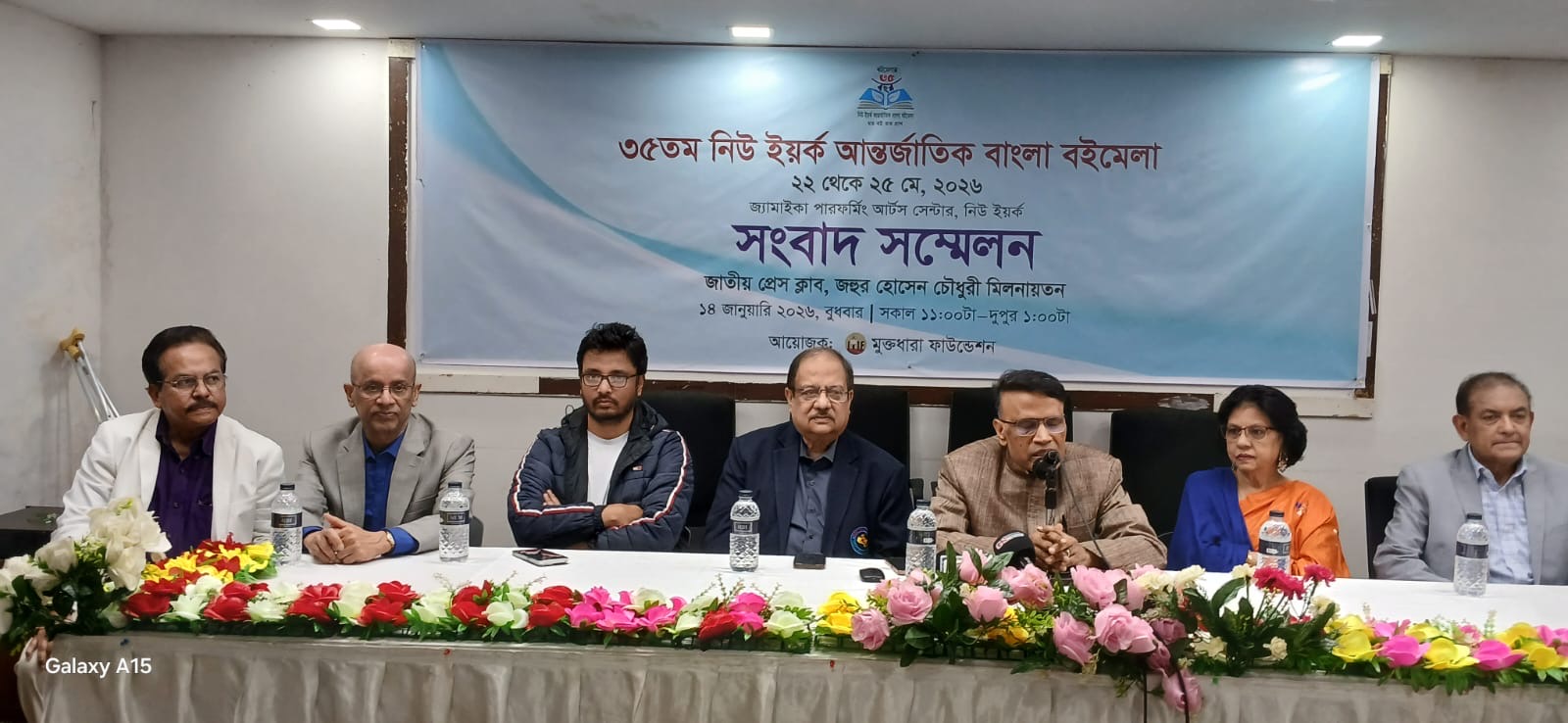brickleane News-
For the first time in its five decades of Bangladesh, a national security advisor has been appointed who resorted to fake identity on Facebook while spending life on foreign soil- US for decades.
In a country where the line between loyalty and betrayal often defines the contours of power, the appointment of Dr. Khalilur Rahman as Bangladesh’s National Security Adviser (NSA) has been described by major political parties and analysts as a betrayal with the nation and a design to serve the interest of foreign power.
On the surface, the interim government led by Nobel Laureate Dr. Muhammad Yunus presented itself as a beacon of reform—promising democratic transition, technocratic competence, and institutional recovery to take Bangladesh forward. Yet beneath this narrative lies a stark contradiction: the nation’s most critical security position has been handed to a man with longstanding foreign ties, who even hid his Bangladesh identity lived in the United States using pseudonym “Roger Rahman”on social media- a treacherous act prior to his appointment.
According to the Mahfuz Anam, editor of a leading Bangladesh newspaper The Daily Star “For the first time in the country’s history, we have a national security adviser with the additional task of advising the chief adviser on defence matters, and Rohingya affairs. His experience on national security and defence matters are totally unknown to the people of this country.”
For over two decades, Rahman resided in the U.S., exhibited an online presence that obscured his real identity, according to recent media expose. Yet ignoring this serious pretensions, he now holds unprecedented access to Bangladesh’s military and intelligence infrastructure.
What does it mean for national security when a key official has spent most of his adult life abroad, deeply embedded in another country’s social and legal fabric? Importantly, how can an unelected transitional government justify bypassing transparency and accountability in such a sensitive appointment?
This case raises fundamental questions about national sovereignty, the integrity of democratic transitions, and the dangers of elite-driven, foreign-influenced governance. Rahman’s ascent to such a powerful role is not merely a personnel decision—it is a reflection of a deeper institutional vulnerability that Bangladesh can no longer afford to ignore.
A Man of Two Lives: Roger vs. Khalilur Rhaman
Until recently, Rahman was virtually unknown to the wider public in Bangladesh. His name was absent from the corridors of Dhaka’s policymaking and security institutions. Instead, what emerged was a digital profile—”Roger Rahman”—active on Facebook and other social media platforms, showing a life lived comfortably in the United States since at least 1998. Photographs place him at various locations across New York, Massachusetts, and Connecticut. The content is deeply personal: birthdays with family, vacations in Paris, holidays with daughters, visits to neurologist clinics run by his sister in Boston. These are not snapshots of a man merely working abroad—they depict someone socially, financially, and emotionally invested in a life outside Bangladesh hiding with his national identity as Bangladeshi by birth.
Public records and digital footprints confirm that this alias was not coincidental or superficial. Rather, it was a deliberate effort to mask his identity. For over decades “Roger Rahman” maintained active online and offline presences in the U.S., spanning real estate transactions, professional engagements, and community activities. It is this individual who, in late 2024, quietly reemerged in Bangladesh’s political scene—first as a special envoy on the Rohingya crisis and then, without any approval from political parties, as the National Security Adviser.
The Appointment Exposed Yunus’s despotic cult and betrayal with the Nation
The announcement of Rahman as NSA came as a surprise to many within Bangladesh’s political, civil and intelligence circles. For a position that traditionally demands unimpeachable national allegiance, deep institutional knowledge, and years of domestic engagement, Rahman’s selection seemed like an aberration—an anomaly justified neither by public accountability nor professional record within Bangladesh.
Unlike conventional appointments, where backgrounds are vetted, security clearances assessed, and loyalty scrutinized, this decision was made without parliamentary oversight or media consultation.
The Yunus-led caretaker administration—formed amid political turbulence and popular discontent—claimed a moral high ground based on transparency and reform. Yet, in this instance, it seemingly bypassed the very mechanisms of transparency it promised to uphold.
The glaring omission of a comprehensive background check—or the deliberate concealment of Rahman’s extensive ties to the U.S.—raises fundamental questions: Was Dr. Rahman ever a U.S. citizen? Has he formally renounced it? What is his residency status? What were the legal and ethical justifications behind such a sensitive appointment?
A Pseudonym or a Deception?
One of the most disturbing elements in this unfolding controversy is the deliberate use of the name “Roger Rahman.” The choice of pseudonym is not in itself illegal, but the context and intent matter. Why would a highly educated, politically ambitious individual with plans to serve in Bangladesh’s most powerful security role maintain a digital alias? Why did he never appear in official or public capacities under his real name until months before the appointment?
This wasn’t just a matter of privacy—it was, arguably, an act of deception. His social media accounts were filled with posts from Boston, Connecticut, and Geneva—none from Dhaka or anywhere in Bangladesh. He presented himself not as a future statesman, but as an expatriate immersed in the comforts of the West.
Even more telling is the interaction on his Facebook profile. Friends referred to him as “Roger,” celebrated his presence in the U.S., and reminisced about years of American life. This wasn’t a temporary posting abroad.
Why NSA keeping mum over us sing false identity on social media ??
When the issue of his nationality was raised in Parliament by BNP leader Salahuddin Ahmed on May 17,. Rahman dismissed the concern with a vague and deflective response: “I remain prepared to exercise my rights as a Bangladeshi citizen to the fullest extent.” The reply was not a denial., It was a redirection—placing the onus on the accuser rather than affirming his exclusive allegiance to Bangladesh and a betrayal with the countrymen.
Even after media exposure of Khalil’s alias digital footprint, the NSA did not refute this evidence and kept a mum over the revelations. Rather Rahman kept attacking critics and citizens who have described him a fraud.
Citizenship laws in Bangladesh prohibit dual nationals from holding certain sensitive offices. While exact legal interpretations can vary, the spirit of these laws is clear: national loyalty must be undivided, especially in matters of intelligence and defense. Even if Rahman legally renounced his U.S. citizenship, the sheer depth of his engagement with American society—owning property, raising children, building professional ties—makes his appointment problematic.
Imagine if the U.S. appointed a Russian-born, Russian-educated expatriate—who had only recently returned—as its NSA. The absurdity is immediate and glaring. Yet Bangladesh has seemingly embraced a similar absurdity without adequate explanation.
Dr. Yunus’ Dangerous Experiment in Technocracy
The interim government led by Dr. Muhammad Yunus came to power as a supposed neutral alternative to the corruption and authoritarianism of the past. It pledged to restore democratic institutions and prepare the ground for fair elections. But in practice, its policies reveal a growing reliance on foreign-educated technocrats with limited grassroots involvement and questionable long-term commitment to the country.
Rahman’s elevation to NSA is the epitome of this technocratic elitism. While intelligence chiefs, defense experts, and civil servants with decades of experience languish in obscurity, the government parachuted in a figure disconnected from the realities of Bangladesh’s security landscape. The dangers of such a move are manifold: from compromised strategic thinking to potential foreign influence, the risks to national sovereignty are not hypothetical—they are real and immediate.
How NSA’s policies proved fatal for Bangladesh
The pledge of Rahman to stop fresh influx of Rohingyas from Myanmar under the current stint appeared a hoax. According to BBC bangla, over 100000 Rohingyas have arrived in past nine months, exposing the farce of Rahman with the nation over easing the burden of the already festering Rohingya crisis.
On the other hand, at least 227 Bangladeshi fishermen were abducted by Arakan Army under the stint of Rahman, another pointer that brings to light vulnerabilities of Rahaman backed policies towards Myanmar according to a report by Samakal. Foreign policy experts reportedly linked these policies a threat to national security and demanded his resignation.
But instead of addressing his failures, Rahman kept projecting his failures as a success for the countrymen. Rahman even went ahead with plan to allow foreign power to use Bangladesh as a corridor a supply line for dispatching materials inside Myanmar territory, what analysts have described to serve his host country US’s strategic interest but entangle Bangladesh in a fresh geopolitical rivalry of foreign powers including China.
Loyalty Beyond Borders?
Critics argue that a person’s education or residence abroad should not automatically disqualify them from serving their country. But the issue here is not one of mere foreign exposure—it is about sustained detachment, hidden identities, and the circumvention of public vetting processes.
Rahman’s reentry into Bangladesh’s political landscape appears not to be the result of a long-term commitment to national development but rather a calculated opportunity during a moment of political fluidity. There is no public record of service to the nation during crises. No speeches. No civil society engagement. No publications on national security. No known ties to the armed forces or intelligence community. Just an abrupt emergence into high office—unquestioned, unelected, and unknown.
A Precedent with Dangerous Implications
This controversy is not just about one man—it is about the standard being set. If someone like Rahman can be handed the reins of national security without full disclosure of background, citizenship status, and past affiliations, what stops future appointments from being even more opaque?
In a country plagued by systemic political mistrust, where the line between governance and manipulation is thin, such decisions only deepen public cynicism. They erode institutional credibility and foster a sense that even revolutions, even popular uprisings, ultimately serve elites—whether local or foreign.
Sovereignty Is Not Symbolic
The appointment of Rahman must be reviewed immediately. At the very least, his security clearance should be suspended pending an independent investigation into his citizenship, background, affiliations, and conflicts of interest. The nation deserves transparency. And more importantly, it deserves loyalty.
Furthermore, the interim government must establish an oversight committee—including journalists, civil society representatives, and retired defense officials—to review all sensitive appointments made during this transitional period.
Dr. Yunus has a moral responsibility to uphold the values that brought him into power. If his administration fails to act decisively, it will forever be stained not just by poor judgment, but by a betrayal of the public trust.
Bangladesh did not endure decades of autocracy, inequality, and political manipulation to be governed by unseen hands or foreign-tinged elites. Sovereignty is not a slogan—it is the bedrock of national dignity. And no man—however educated, however connected—should be above the question of loyalty.






Leave a Reply